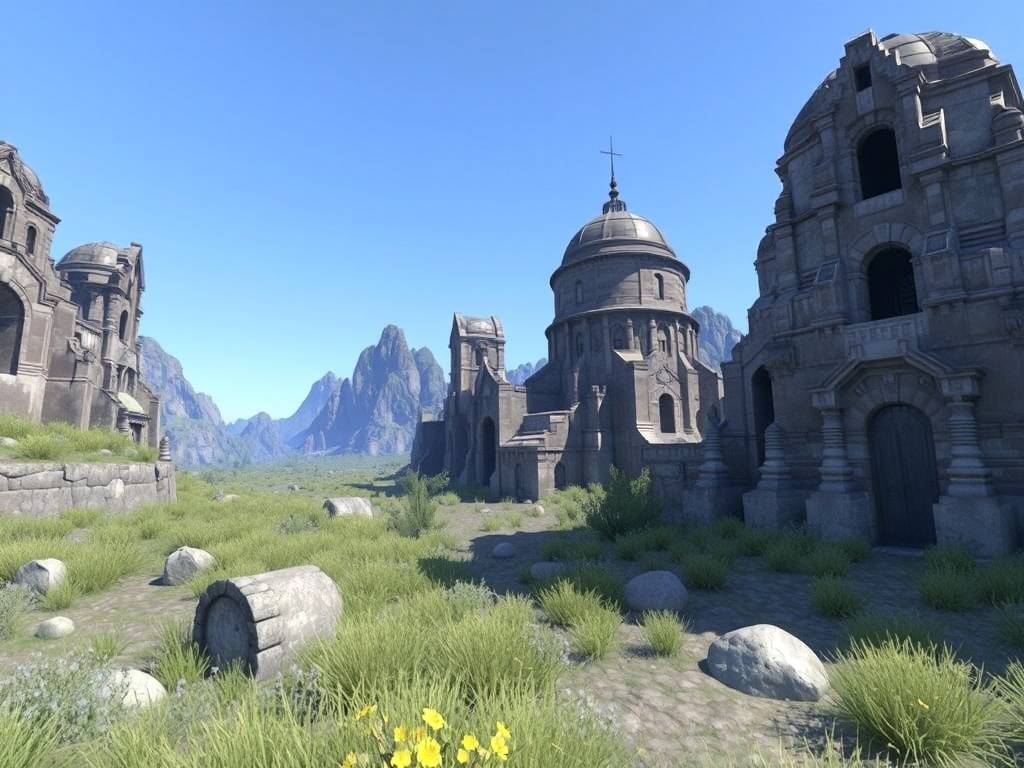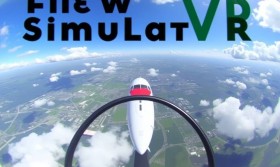The Nexus Evolved: How Alter Missions Are Redefining Reality in VR
The promise of Virtual Reality has always been one of transcendence—the ability to step outside our physical confines and experience the impossible. For years, developers have chased this dream with increasingly powerful graphics, intricate worlds, and compelling narratives. Yet, a fundamental barrier remained: the predictability of code. No matter how vast the open world, the paths were pre-ordained; no matter how complex the NPC, their responses were scripted. The player, ultimately, was a guest in a meticulously crafted, but ultimately static, kingdom.

This is the paradigm that the latest update to the groundbreaking platform, Reality Simulator VR, seeks to shatter. Dubbed the "Alter Missions" update, it isn't just an expansion of content; it's a fundamental re-architecture of how we interact with digital worlds. It moves VR from a stage where we perform pre-written plays to a living ecosystem where our every action has genuine, cascading consequences. This is the dawn of dynamic, player-driven narrative on a scale previously confined to theory.

From Scripted Paths to Living Ecosystems
At its core, the Alter Missions system is powered by a sophisticated AI narrative engine that operates in real-time. Traditional quests—"retrieve the artifact," "defeat the warlord"—are replaced by dynamic event seeds. Imagine receiving a mission not as a detailed briefing, but as a fragment of intelligence: "Tensions are rising in the Veridian District between the Crimson Syndicate and the City Watch."
This is not a quest marker. It is a catalyst.
Upon arriving in the Veridian District, the simulation is already in motion. You might witness a Syndicate enforcer shaking down a shopkeeper. Your choice in this moment is not a binary "intervene" or "ignore" prompt. It is a genuine, unscripted action. Do you draw your weapon and confront the enforcer, earning the gratitude of the shopkeeper but painting a target on your back for the entire Syndicate? Do you use stealth to plant evidence framing a rival gang, escalating a gang war that will change the district's power structure? Or do you simply observe, gathering information that you can later sell to the highest bidder?
The AI Director behind the Alter Missions system processes your action and begins to generate a unique narrative branch. The shopkeeper you saved may become a valuable informant, offering you discounts or tipping you off to future opportunities. Alternatively, if you were seen but not identified, the Syndicate might increase patrols, making future missions in the area significantly harder. The system tracks reputation, faction relationships, economic stability, and even the morale of NPC populations, creating a fragile, interconnected web of cause and effect.
The Ripple Effect: Consequences That Matter
The true genius of Alter Missions lies in its persistence. A choice made during a mission in your first hour of play can resurface dozens of hours later. This "ripple effect" is the update's flagship feature.
-
Example 1: The Merciful Choice. You are tasked with eliminating a corrupt official. Instead of killing him, you expose his crimes to the public, leading to his arrest. Weeks later, a reformed character, grateful for the chance at redemption, provides you with a crucial piece of information that unlocks an entirely new storyline—one that would have remained hidden had you chosen the violent path.
-
Example 2: The Economic Sabotage. A mission to disrupt a rival corporation's operations can be completed by destroying their factory. The immediate mission is a success. However, the resulting economic collapse leads to widespread unemployment in a nearby city. This creates a surge in crime, which in turn generates new, more dangerous Alter Missions in that area. You solved one problem but created a far more complex one.
-
Example 3: The Unforeseen Alliance. By consistently favoring one faction over another in seemingly unrelated missions, you might inadvertently push two weaker factions into a desperate alliance against you. The world doesn't just react to you; it adapts and evolves around your presence, treating you not as a hero, but as a powerful and unpredictable force of nature.
This level of dynamism shatters the concept of "save-scumming"—the practice of reloading a game to try different choices. In Reality Simulator VR's Alter Missions, every decision is permanent and woven into the fabric of your personal world state. There is no single "correct" path, only the path you create.
The Technical Marvel: Beyond Branching Dialogue Trees
To achieve this, the developers have moved far beyond traditional branching dialogue trees. The update leverages a combination of procedural generation and advanced AI language models. While core narrative beats are hand-crafted, the dialogue, mission parameters, and NPC behaviors are generated contextually. An NPC will comment on your recent actions, your reputation, and even the state of the world using unique, unscripted language. This creates an unparalleled sense of a world that is aware of your existence.
Furthermore, the Alter Missions system is integrated with the game's physics and economy. A mission to stop a convoy isn't just about shooting the lead vehicle. You could use the environment—triggering a landslide, sabotaging a bridge—and the simulation will calculate the logistical and economic impact of that route being closed, creating new mission opportunities elsewhere.
The Philosophical Shift: From Player to Participant
The Alter Missions update represents a philosophical shift in game design. It challenges the player to think not in terms of "completing objectives," but in terms of "managing influence." You are no longer a pawn following a script; you are a central actor in a living, breathing world. This brings a new weight to every interaction. A casual conversation in a tavern could have far-reaching implications. A stray bullet that kills a bystander can have tragic consequences.
This level of immersion comes with a unique emotional weight. The joy of seeing a positive outcome from a difficult moral choice is profound. Conversely, the guilt of a decision that leads to unforeseen suffering is a powerful, and surprisingly rare, emotion in gaming. Reality Simulator VR is no longer just a simulator of fantastical realities; it is a simulator of consequence.
Conclusion: The Future is Adaptive
The "Alter Missions" update for Reality Simulator VR is more than a patch; it is a declaration of a new direction for interactive entertainment. It proves that the future of VR lies not just in higher resolutions or more realistic physics, but in creating worlds that think, react, and remember. It transforms the player from a tourist into a resident, with all the power, responsibility, and complexity that entails. This is the next great leap towards a truly simulated reality—one where our choices are not just illusions of freedom, but the very engine that drives the world forward. The simulation is no longer just a backdrop; it is a character, and you are in constant, meaningful dialogue with it.


















